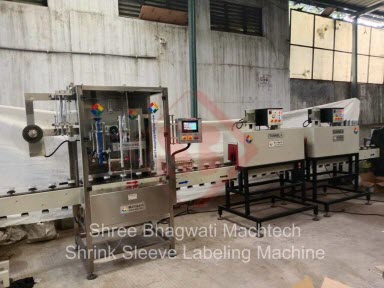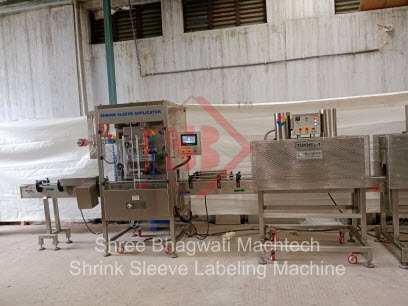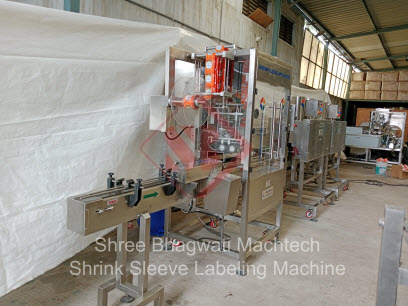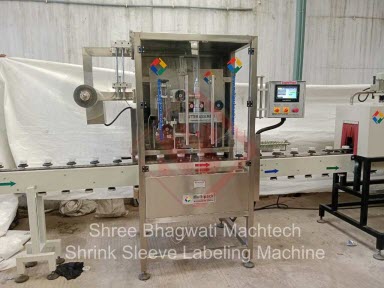Sleeve labeler machines have become a cornerstone in the packaging industry, enabling efficient and eye-catching labeling solutions for a variety of products. This article delves into the market analysis of sleeve labeler machines in the USA and Europe, exploring the demand, growth trends, and factors contributing to their popularity in the packaging sector.
Sleeve labeler machines have revolutionized product packaging by providing a versatile and visually appealing labeling solution. The USA and Europe markets have witnessed a significant demand for these machines due to their efficiency, aesthetics, and adaptability to various industries.
The Role of Sleeve Labeler Machines in Packaging
Sleeve labeler machines apply shrinkable sleeves to containers, providing a 360-degree branding surface. This allows for vibrant graphics, information, and promotional messages to be displayed, enhancing product visibility and consumer engagement.

Demand and Adoption in the USA
Beverage Industry
In the USA, sleeve labeler machines are widely adopted in the beverage industry, including bottled water, soft drinks, and alcoholic beverages. The 360-degree labeling offers ample space for vibrant designs and nutritional information.
Food Sector
Sleeve labeler machines also find application in the food sector, especially for canned goods, condiments, and snacks. The labeling process ensures that product information and branding remain intact even in challenging storage conditions.
Personal Care and Household Products
Personal care and household products benefit from sleeve labeling due to the ability to showcase intricate designs and essential information. Shampoo bottles, cleaning products, and cosmetics often use sleeve labels to stand out on shelves.

Growth Trends in the European Market
Sustainable Packaging
In Europe, the focus on sustainable packaging aligns with sleeve labeling. The use of eco-friendly materials and the recyclability of sleeve labels resonate with environmentally conscious consumers.
Craft and Artisanal Products
Sleeve labeler machines cater to the rising trend of craft and artisanal products. Whether it’s craft beers, artisanal sauces, or handcrafted cosmetics, sleeve labeling helps products tell their unique stories.
Pharmaceutical and Health Products
The pharmaceutical and health industries in Europe also embrace sleeve labeling. The precision and tamper-evident features of sleeve labels contribute to the safety and authenticity of products.

Factors Driving the Popularity of Sleeve Labeler Machines
Aesthetic Appeal
Sleeve labels offer ample space for intricate designs and captivating graphics, making products visually appealing and contributing to brand recognition.
Cost-Efficiency and Flexibility
Sleeve labeler machines accommodate various container shapes and sizes, reducing the need for custom packaging. This flexibility leads to cost savings and streamlined production processes.
Regulatory Compliance
Sleeve labels can include vital product information, regulatory details, and multilingual content, ensuring compliance with labeling regulations in different markets.
Competitive Landscape and Innovation
The sleeve labeling machine market is competitive, with manufacturers constantly innovating to meet evolving industry demands. Technological advancements focus on faster changeover times, improved efficiency, and enhanced label materials.

Conclusion
The demand and growth of sleeve labeler machines in the USA and Europe underscore their pivotal role in the packaging industry. From beverages and food to personal care and pharmaceuticals, these machines offer a powerful solution for creating visually appealing and informative product packaging. As consumer preferences evolve and sustainability gains prominence, sleeve labeler machines are poised to continue their trajectory as indispensable tools in modern packaging practices.














